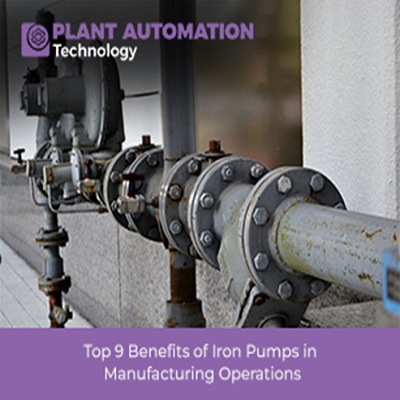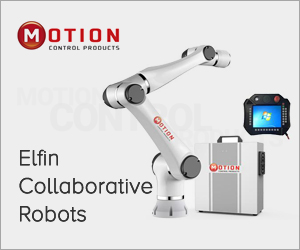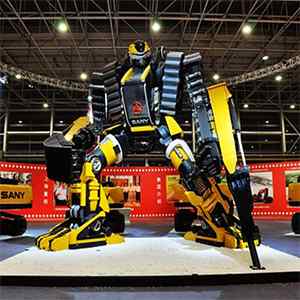Top 9 Benefits of Iron Pumps in Manufacturing Operations

Introduction
Iron pumps play a vital role in manufacturing operations. They serve as reliable workhorses that facilitate fluid transfer, enhance process efficiency, and ensure smooth production workflows. With their robust construction and versatile applications, iron pumps, including cast iron pumps, are widely employed in diverse industrial settings.
Cast iron pump air compressors are renowned for providing a dependable compressed air source for various manufacturing applications. With their robust construction and efficient performance, they excel at powering pneumatic tools and air-driven machinery, as well as delivering clean and dry air supply. These compressors guarantee seamless operations and significantly enhance productivity in manufacturing environments.
In this article, we explore the top 9 benefits of iron pumps in manufacturing operations, highlighting their efficiency, durability, and versatility.
Benefits of Iron Pumps in Manufacturing Operations
1. Robust Construction and Durability
- Iron pumps are known for their exceptional strength and durability.
- They are resistant to wear, corrosion, and high temperatures.
- They can withstand demanding conditions in manufacturing environments.
Iron pumps, made of cast iron, are renowned for their exceptional strength and durability. Cast iron, known for its resistance to wear, corrosion, and high temperatures, provides a reliable material for manufacturing robust and long-lasting pumps. This durability ensures that iron pumps can withstand the demanding conditions often encountered in manufacturing environments, including exposure to harsh chemicals, abrasive substances, and heavy loads. Their resilience contributes to reduced downtime, lower maintenance costs, and increased operational efficiency.
2. Enhanced Fluid Transfer Efficiency
- Iron pumps provide high flow rates and consistent performance.
- They efficiently move liquids, slurries, and gases.
- Cast iron pumps have exceptional suction capabilities.
Smooth manufacturing operations require efficient fluid transfer. Iron pumps excel in this aspect by providing high flow rates and consistent performance. Iron pumps allow efficient movement of various fluids, including liquids, slurries, and gases. Cast iron pumps, in particular, are known for their exceptional suction capabilities, making them suitable for handling viscous fluids and challenging pumping applications. By ensuring optimal fluid transfer, iron pumps help maintain consistent production rates, reduce process disruptions, and enhance overall productivity.
3. Versatility in Applications
- Iron pumps are adaptable to various manufacturing processes.
- They can pump liquids, circulate coolant, transfer chemicals, and power pneumatic systems.
- Using a single pump type for multiple functions is possible.
Iron pumps offer versatility in their applications, catering to a wide range of manufacturing processes. Whether it's pumping liquids, circulating coolant, transferring chemicals, or powering pneumatic systems, iron pumps can adapt to diverse requirements. For instance, cast iron pumps find application in air compressors, serving as reliable sources of compressed air for various manufacturing operations. This versatility enables manufacturers to streamline their operations by utilizing a single pump type for multiple functions, reducing equipment costs, and simplifying maintenance procedures.
4. Cost-Effectiveness
- Robust construction and durability minimize frequent replacements.
- They result in lower maintenance costs and decreased downtime.
- Iron pumps reduce energy consumption and operational costs.
Iron pumps, including cast iron pumps, are known for their cost-effectiveness. Their robust construction and durability minimize frequent replacements, reducing equipment acquisition costs in the long run. Additionally, iron pumps require minimal maintenance, resulting in lower downtime and decreased repair expenses. Iron pumps improve process efficiency, reducing energy consumption and operational costs. By optimizing fluid transfer and minimizing waste, iron pumps help manufacturers achieve cost savings and enhance their competitive edge.
5. Reliable Performance in Challenging Environments
- Iron pumps can withstand high temperatures, corrosive substances, and demanding work conditions.
- They are resistant to corrosion, erosion, and thermal stress.
- They ensure consistent operation, reduced downtime, and enhanced worker safety.
Manufacturing operations often involve challenging environments characterized by high temperatures, corrosive substances, and demanding work conditions. Iron pumps, with their ability to withstand such conditions, offer reliable performance in these challenging settings. The robustness of cast iron pumps ensures resistance to corrosion, erosion, and thermal stress, making them suitable for various industrial processes. This reliability translates into consistent operation, reduced downtime, and enhanced worker safety, ultimately contributing to improved manufacturing efficiency and output.
6. Energy Efficiency
- Iron pumps optimize energy consumption during fluid transfer processes.
- They provide high flow rates with minimal energy requirements.
- They result in lower electricity bills and improved manufacturing sustainability.
Iron pumps are designed to optimize energy consumption during fluid transfer processes. Their efficient operation results in reduced power usage, leading to cost savings for manufacturers. By utilizing precisely engineered impellers, iron pumps provide high flow rates while minimizing energy requirements. Energy efficiency translates into lower electricity bills and improved manufacturing sustainability. Additionally, iron pumps contribute to consistent production rates, further enhancing energy efficiency throughout the manufacturing process.
7. Low Maintenance Requirements
- Robust construction and durable materials reduce repairs and replacements
- Minimal maintenance needs and long trouble-free operation
- Maximized operational efficiency and minimized productivity losses
Iron pumps, including cast iron pumps, are renowned for their low maintenance needs. Their robust construction and durable materials significantly reduce repairs and replacements, saving manufacturers money. Cast iron pumps' inherent resistance to wear and corrosion extends their lifespan, ensuring long trouble-free operation. With minimal maintenance requirements, manufacturers can allocate resources effectively, focusing on other critical aspects of production. Iron pumps further maximize operational efficiency and minimize productivity losses.
8. Customizability and Adaptability
- Iron pumps cater to a wide range of fluid transfer applications.
- They can handle viscous fluids, transfer chemicals, and power pneumatic systems.
- Iron pumps reduce equipment costs and simplify maintenance procedures.
Iron pumps offer a high degree of customizability and adaptability, allowing manufacturers to select the appropriate pump type based on their specific requirements. Different variations of iron pumps cater to a wide range of fluid transfer applications, including pumping liquids, slurries, and gases. Whether it's handling viscous fluids, transferring chemicals, or powering pneumatic systems, iron pumps can adapt to diverse manufacturing processes. This versatility enables manufacturers to streamline their operations by utilizing a single pump type for multiple functions, reducing equipment costs, and simplifying maintenance procedures.
9. Safety considerations
- Reliable performance and durable construction contribute to a safe working environment.
- They are resistant to corrosion, erosion, and thermal stress.
- Iron pumps minimize equipment failures and potential hazards associated with fluid transfer processes.
Manufacturing environments pose inherent risks to workers. Iron pumps, with their reliable performance and durable construction, contribute to a safe working environment. Cast iron pumps ensure resistance to corrosion, erosion, and thermal stress, reducing the likelihood of equipment failures that could jeopardize worker safety. By providing consistent operation and minimizing downtime, iron pumps mitigate potential hazards associated with fluid transfer processes. This enhances manufacturing safety standards.
Iron pumps are designed with specific safety features and mechanisms that prioritize worker well-being and contribute to a safe working environment. One notable safety feature found in many iron pumps is the incorporation of robust sealing systems. These sealing systems prevent leakage and the release of hazardous fluids, minimizing the risk of chemical exposure and potential accidents. Additionally, iron pumps often include advanced monitoring and control systems that provide real-time feedback on pump performance, temperature, and pressure. This enables operators to identify any anomalies or potential issues promptly, allowing for preventive maintenance and reducing the likelihood of unexpected failures or accidents. Furthermore, some iron pumps are equipped with overload protection mechanisms, such as thermal overload switches or pressure relief valves. These mechanisms automatically shut down the pump or relieve excess pressure, preventing damage to the pump and ensuring the safety of both the equipment and the operators. By integrating these safety features and mechanisms, iron pumps significantly contribute to a safe working environment by minimizing the risks of accidents, injuries, and exposure to hazardous substances.
Iron pumps have demonstrated remarkable energy efficiency, leading to substantial cost savings for manufacturing operations. A study conducted by the Industrial Energy Efficiency Program found that implementing energy-efficient iron pumps in fluid transfer processes resulted in an average energy consumption reduction of 15%. This reduction translates into significant electricity cost savings for manufacturers, with an estimated annual savings of up to $50,000 for medium-sized facilities.
Furthermore, the durable construction of iron pumps, particularly cast iron pumps, has been shown to reduce maintenance costs by up to 25% compared to other pump materials. A survey conducted by the Manufacturing Maintenance Association reported that manufacturers experienced a notable decrease in repair and replacement expenses after transitioning to iron pumps, contributing to overall cost reductions and improved profitability.
Conclusion
Iron pumps, including cast iron pumps, offer reliability, energy efficiency, low maintenance, and customizability in manufacturing operations. These pumps provide reliable fluid transfer, enhance process efficiency, and withstand demanding conditions in manufacturing environments. By leveraging iron pumps, manufacturers can optimize production workflows, reduce costs, and achieve higher productivity. Whether it's pumping liquids, circulating coolant, or powering air compressors, iron pumps prove indispensable tools in modern manufacturing operations.







